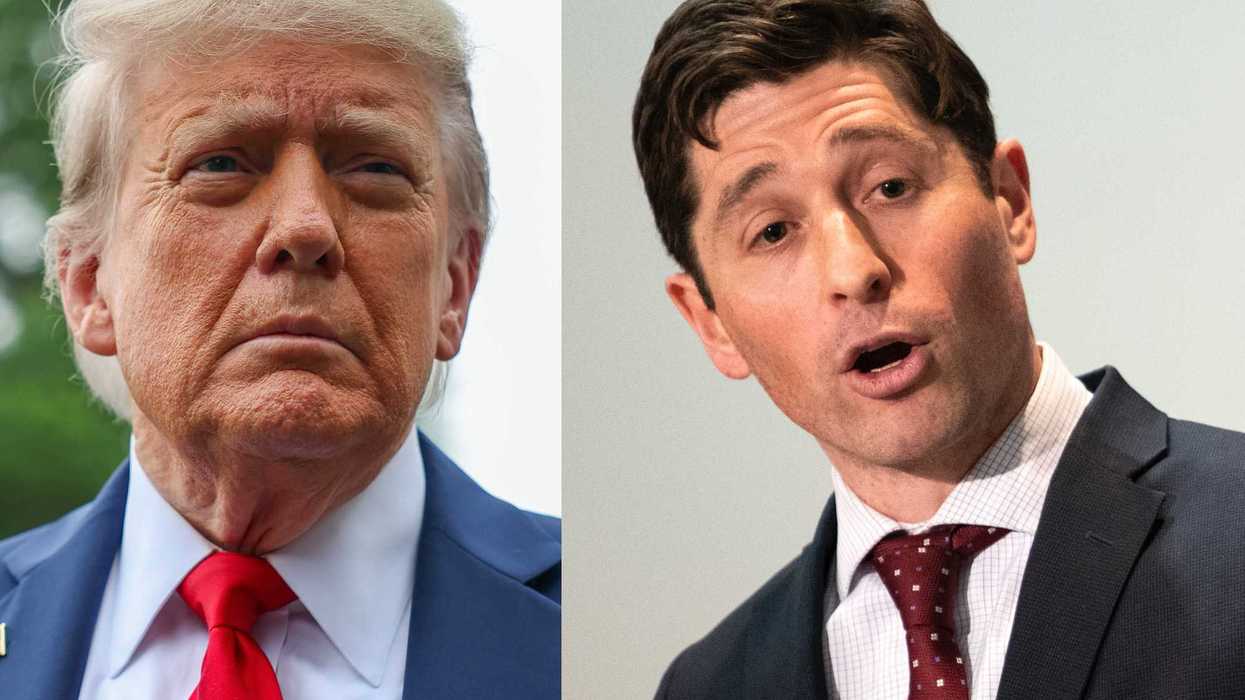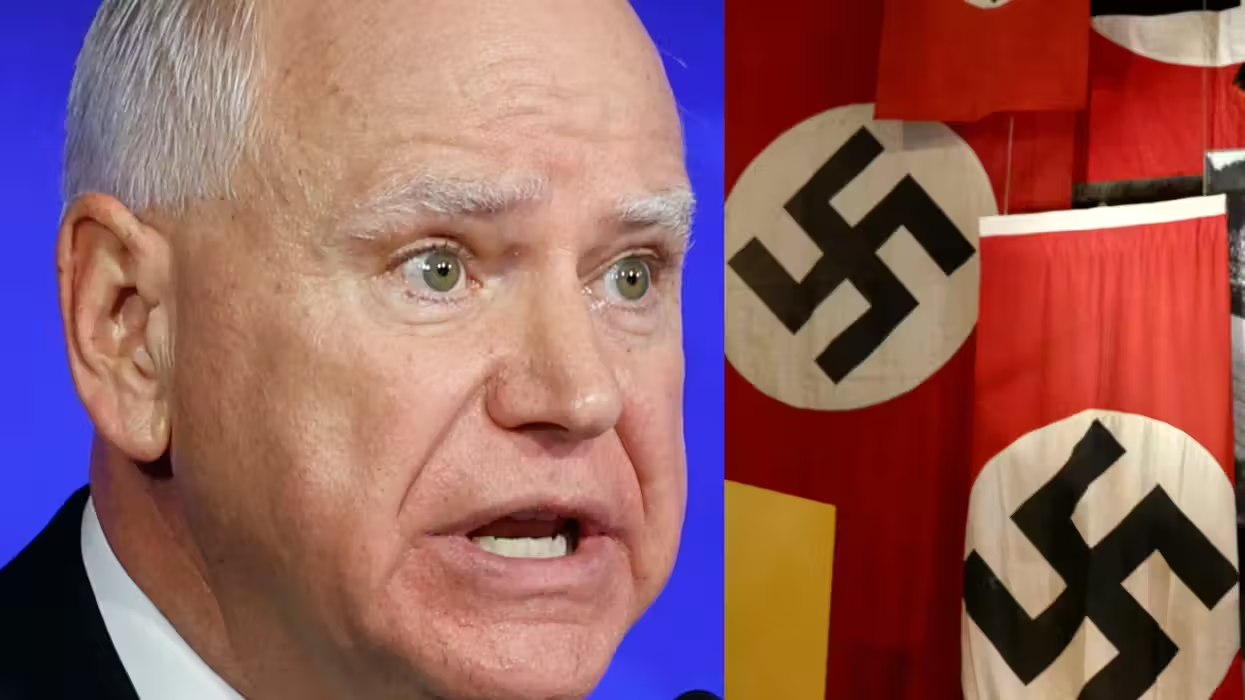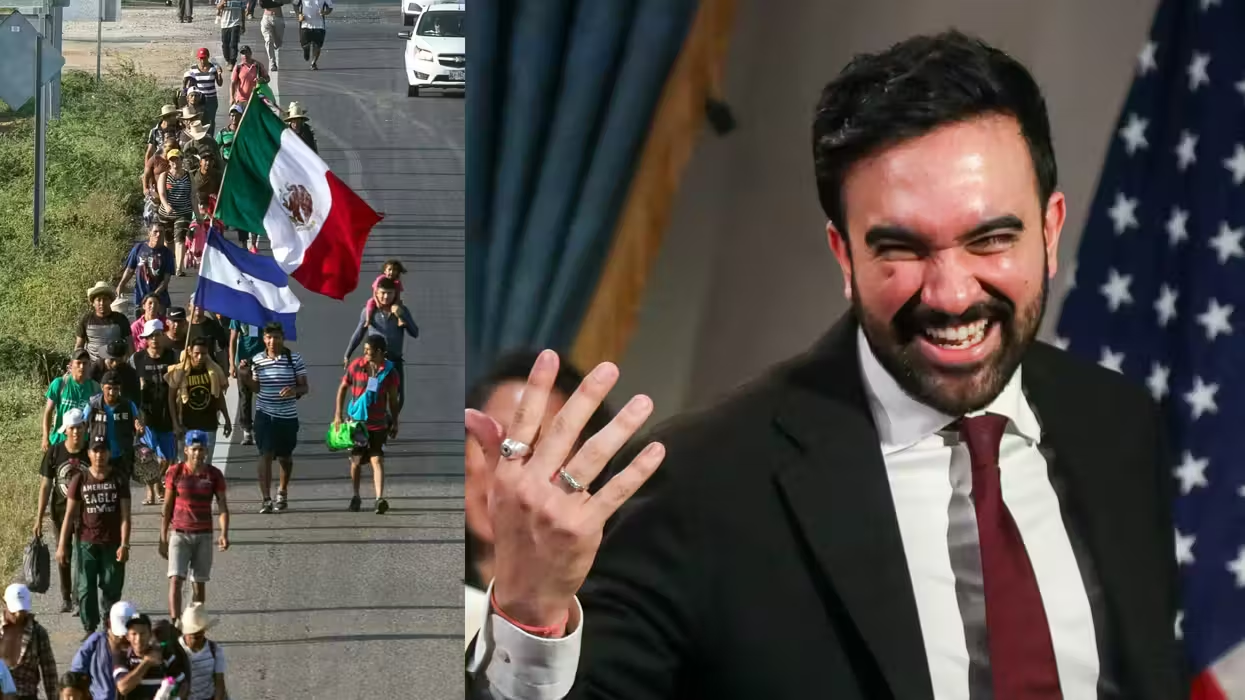© 2026 Blaze Media LLC. All rights reserved.
“Islamic brothers should attempt to resolve a dispute among themselves.”

Is Florida distinguishing itself as the new battleground for Shariah law in America?
A decision by a Florida appeals court to allow a local judge to uphold Islamic law in a controversial mosque-related lawsuit is gaining national attention. Critics are decreeing this as a concerning development -- though the facts paint a complicated legal picture.
To recap, former trustees of the Islamic Education Center of Tampa sued the mosque after claiming that they were unfairly removed from their positions. When the case made its way to court, Hillsborough Circuit Judge Richard Nielsen (a Republican nominated by former Gov. Jeb Bush) ruled that “ecclesiastical Islamic law” would be cited in the case. As you may recall, the Blaze first covered this case back in March 2011. Fox News has more:
Nielsen said in March that based on testimony, “under ecclesiastical law” and pursuant to the Koran, “Islamic brothers should attempt to resolve a dispute among themselves.”
Below, see a portion of his ruling (you can read the original ruling here):

Many saw this act as an attempt by Nielsen to allow Islamic law into American courts. But it should be noted that the two parties -- the Islamic center and the estranged trustees -- had reportedly decided beforehand to use an imam and Islamic law to resolve their differences through arbitration.
If this is true, then Neilsen was only referencing Islamic legalities in making a determination as to whether the parties could solve their problems through arbitration and not the courts (in the end, he ruled they could). Here's where the situation really derailed. The St. Petersburg Times reports:
The arbitration itself is in dispute, with mosque officials saying it never took place.The arbitrator ruled in favor of several men ousted as mosque trustees, a decision that, if upheld, could wrest control of $2.2 million in mosque coffers.
Like everything else in the litigation, the meaning of the appeals court ruling is in dispute.
Confused? You're not alone. Essentially, the issue at hand here seems to be the fact that there was no written opinion, thus the mosque and its representation believe that the court isn't addressing the true merits of the case. Paul Thanasides, the attorney representing the mosque, claims that both the U.S. Constitution and Florida law do not allow for Nielsen to follow Islamic law in making his ruling.
While this is an interesting argument, especially coming from the leaders of a mosque, one wonders if the loss in arbitration is further complicating the mosque's view on the matter.
Again -- it must be noted that, while Neilsen did send the case to an arbitrator, claiming that Islamic law could govern the debate, he did not, himself, employ Sharia law. Florida's 2nd District Court of Appeal's rejection of the request to block Neilsen's ruling essentially places the case back in the judge's hands.
A motion that Thanasides filed with him on Monday, though, asks for the case to be dismissed due to a lack of jurisdiction. The motion reads, "Florida law is clear that courts may not decide corporate governance disputes involving religious organizations."
According to Lee Segal, who represents the four trustees, the appeals decision is a major win for his side. He claims that the appeals ruling essentially places the case back into Neilsen's hands, though the lawyer explains that his clients may be ruled against if it is determined that Islamic law was not followed in arbitration.
Because this case is civil and not criminal, the presence of Islamic law takes on an entirely different meaning. If it were criminal, the state would be making decisions based solely on Islamic law.
In a civil case, when all parties are Muslims, the notion that religious law would be relied upon to settle a dispute is somewhat more benign. Still, there are some valid questions worth asking -- one of them being: Where is the limit on including religious law in legal rulings?
(H/T: Fox News)
Want to leave a tip?
We answer to you. Help keep our content free of advertisers and big tech censorship by leaving a tip today.
Want to join the conversation?
Already a subscriber?
Billy Hallowell is a digital TV host and interviewer for Faithwire and CBN News and the co-host of CBN’s "Quick Start Podcast."
Billy Hallowell
Billy Hallowell is a digital TV host and interviewer for Faithwire and CBN News and the co-host of CBN’s "Quick Start Podcast."
more stories
Sign up for the Blaze newsletter
By signing up, you agree to our Privacy Policy and Terms of Use, and agree to receive content that may sometimes include advertisements. You may opt out at any time.
Related Content
© 2026 Blaze Media LLC. All rights reserved.
Get the stories that matter most delivered directly to your inbox.
By signing up, you agree to our Privacy Policy and Terms of Use, and agree to receive content that may sometimes include advertisements. You may opt out at any time.






